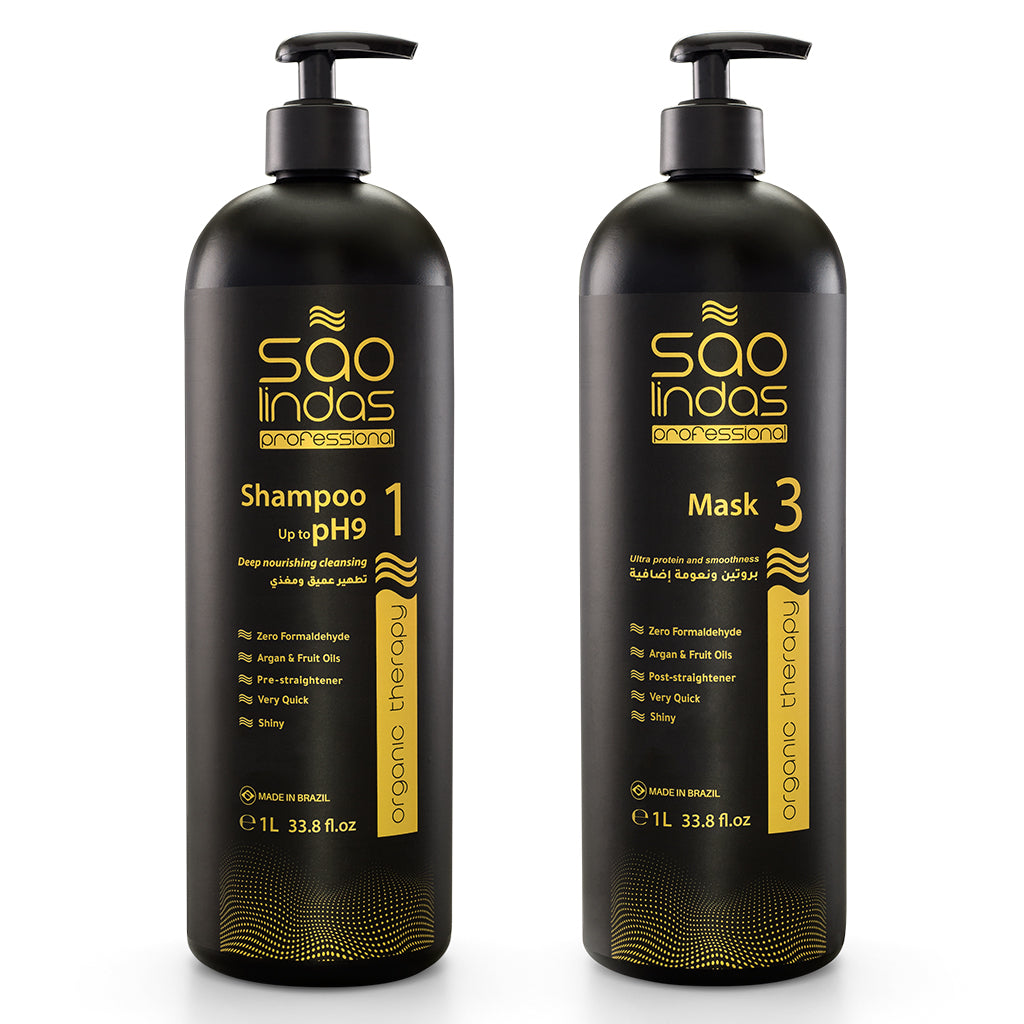Keratin treatments are known for giving hair an amazing look: the strands get smoother and shinier than ever. This treatment usually lasts from three to four months – but depending on your aftercare it can last a little longer. In the same way, the lack of specific hair care might remove the protein treatment from your hair sooner than you expected.
And we don’t want that to happen, right? If you want to keep your shiny strands and protein therapy to last longer, there are some tricks that might be really helpful. Among them, one of the most effective is to use a sulfate-free shampoo. This article will explain why and how. Check it out!
What is a sulfate-free shampoo?

When sulfuric acid combines with other chemicals, it generates a salt called sulfate. Although several forms of sulfates are utilized in different industries, the two most commonly used sulfates in the hair care business are sodium lauryl sulfate (SLS) and sodium laureth sulfate (SLES).
Petroleum and plant sources such as palm and coconut oil are used to make these chemicals.
Sulfates are thought to be effective cleaning agents. When compared to other cleansing substances, they are claimed to offer the deepest cleansing capabilities. Sulfates are a type of cleaner that belongs to the anionic surfactant family.
Why to avoid sulfate?

Sulfates make a very effective cleanse. On the other hand, this type of cleansing is too strong for some hair types and makes them drier. Plus: sulfates not only remove the dirt from our scalp, but also chemical treatments, such as coloration and protein/keratin treatments.
We got to the right point: sulfate shampoos remove more keratin than sulfate-free shampoos (that have a milder cleanse). As a result, it lasts much less when you wash your hair with strong sulfates.
Benefits of using it

As we told you, sulfate-free shampoos will preserve your hair and keep your treatment for longer. These are already great reasons to start using them, but if you don’t think that is enough, know that they also provide several other benefits. Take a look at some of them!
Maintains moisture and repairs hair
If your hair has been coloured or chemically treated, use this shampoo to bring it back to life. Sulfate-free shampoos help your hair retain its natural hydration, so it retains its natural luster and smoothness.
Maintains hair color
Sulfate-free shampoos are a godsend if you have colored hair. These are gentler than their competitors and won’t strip your hair of its color as quickly. Sulfate-free shampoos are gentle on your hair, not only because they include hydrating agents, but also because they make your hair shine. Using a shampoo like this in conjunction with a conditioner can make your hair lustrous.
Reduces itchiness
Sulfates are harsh on the scalp and can cause itching and inflammation. Sulfate-free shampoos are gentler on the scalp and can help reduce inflammation.
Tearless
Sulfate-free shampoos are very soothing on the eyes. If you get a dab of shampoo in your eye, it doesn’t cause a painful burning sensation.
Environmentally beneficial
Sulfate-free shampoos are produced primarily from plant derivatives, making them environmentally friendly.
Adds moisture to the hair
Sulfate-free shampoos are great for hair with poor porosity, which means it has a hard time absorbing moisture. They keep your hair moisturized and frizz-free. Sulfate-free shampoos protect you from potentially harmful chemical compounds over time.
After all this information, we can conclude that protein treatments and sulfate-free shampoos are a perfect combination. So, what are you waiting to switch your shampoo and enjoy your keratin treatment for longer? We guarantee you won’t regret it!
Take a look at Metro Brazil’s website: we have the best shampoos and protein treatment options for your hair!
And if you enjoyed this article, share it with your friends and follow us on social media!